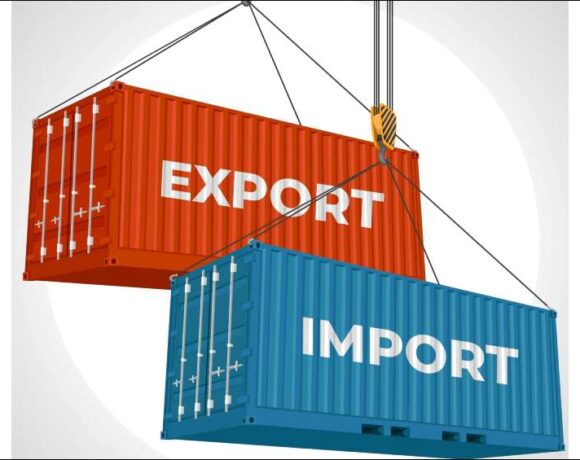T&A Sector Has To Redeem Itself With Macro-Economic Budgetary Offerings

Even as the Union Budget 2024 has not been able to live up to the textile and apparel sector’s expectations in terms of direct benefits, the other macro-economic measures proposed by the Union Finance Minister to boost employment, skilling, infrastructure, start-up ecosystem, MSMEs, financial support for clean energy transition as also ensuing fiscal consolidation of the overall economy, is likely to boost the demand and supply of textiles/apparel in the long term and thus help the industry achieve its set goals. However, in the short run, the industry is currently desperately looking out for some specific interventions to bail it out from the prevailing challenging scenario.
“These macro- economic measures will definitely help the T&A industry as well. But in the short run, we were desperately expecting this budget to help us reduce the cost of our sourcing of raw materials and thus offer us a much needed level playing field. There were also other demands that could have helped us in building a robust and competitive production base. However, these demands have not been met. Hopefully, some of the demands like lowering of the investment threshold for the PLI scheme for MMF products as also introducing a PLI scheme for apparel should be addressed separately ” says Sanjay Jain, Managing Director, TT Ltd and past Chairman, Confederation of Indian Textile Industry (CITI).
“The Finance Minister presented a growth-oriented budget today. The focus on fiscal consolidation without cutting down on capital expenditure with clear roadmap for “Viksit Bharat” is extremely positive. The emphasis on job creation, skilling, a boost to the MSME sector as well as tax relief to the middle classes will add more income in the hands of the people,” says Venkat Chalasani, Chief Executive, AMFI.
“The budget’s most commendable achievement is its firm commitment to fiscal consolidation. The Finance Minister has set the fiscal deficit target for 2024-25 at 4.9 per cent of GDP, moving closer to the goal of 4.5 per cent for the following fiscal year. This focus on fiscal discipline is crucial for maintaining long-term economic stability and investor confidence,” states Mehul Pandya, Managing Director & Group CEO, CareEdge
“The budget priorities such as employment and skilling, social justice and manufacturing are a step in the right direction in the pursuit of Viksit Bharat 2047. The government has rightly renewed its focus on four major pillars: the poor, women, youth and farmers,” observes N. Chandran, Chairman, Eastman Exports.
“The Union Budget 2024 presents a holistic approach to India’s economic growth, with a strong emphasis on manufacturing, energy and sustainability. The employment incentives for the manufacturing sector are poised to stimulate job creation and strengthen our workforce. The focus on nuclear energy development and indigenous thermal power technologies demonstrates a commitment to energy security and efficiency. The budget’s sustainability measures, particularly the rooftop solar scheme, are set to transform energy consumption at both household and industrial levels. Overall, this budget lays a solid foundation for industrial growth, aligning with our vision of a sustainable and innovative future for India,” says Riju Jhunjhunwala, CMD, RSWM Ltd & MD, Bhilwara Energy Ltd.
“The government has balanced populist and policy measures well. RAI appreciates the focus on empowering the middle class and rural population. Initiatives like monetary support for farmers, higher personal income tax exemptions and increased standard deductions will boost disposable income and stimulate spending, driving economic growth. The reduction of duty on gold, precious metals, and mobile phones will benefit these sectors, especially during festive seasons,” says Kumar Rajagopalan, CEO, Retailers Association of India (RAI)
Congratulating the Finance Minister for presenting her 7th Union Budget, Rakesh Mehra, Chairman of the CITI termed the budget as a forward-thinking budget that addresses several key issues for the overall growth of the Indian economy. However, he feels that the ongoing stagnation in the textile and apparel industry needs some bold measures for capacity building, modernisation and cost competitiveness.
However, Mehra is strongly of the view that the new credit guarantee scheme for MSMEs in the manufacturing sector is a noteworthy budgetary initiative. Since over 80 per cent of the textiles and apparel production is the MSME sector, experts believe that the initiative will significantly help the industry. This scheme will facilitate term loans for the purchase of machinery and equipment, eliminating the need for collateral or third-party guarantees. By pooling credit risks, a self-financing guarantee fund will be established, providing guarantee coverage up to Rs 100 crore per applicant, although the loan amounts may exceed this limit. Borrowers will be required to pay an upfront guarantee fee and an annual fee based on the reducing loan balance.
A mechanism to support MSMEs during periods of financial stress has also been announced. This initiative ensures continued access to bank credit for MSMEs in the ‘special mention account’ stage, helping them avoid slipping into non-performing asset status. The credit will be backed by a guarantee from a government-promoted fund, providing much-needed support to sustain their operations.
“The budget places special attention on MSMEs and labour-intensive manufacturing, introducing a new assessment model for MSME credit by public sector banks based on digital footprints rather than only on assets and turnover criteria. The credit guarantee scheme envisaging pooling of credit risks of MSMEs is a welcome step,” avers CareEdge’s Pandya.
“MSMEs account for about 80 per cent of the Indian textile industry. The credit assurance schemes announced will provide the much-needed impetus to the growth of a large number of textile and garment MSMEs and enable them to expand their operations and innovate,” adds the CITI chairman.
Welcoming the Budget, SK Sundararaman, Chairman, The Southern India Mills’ Association (SIMA) has hailed the Finance Minister for the announcement of Credit Guarantee Scheme for MSMEs and facilitating term loans for purchase of machinery and equipment without collateral. The industry has been demanding a separate scheme for credit guarantee facility, since the highly vulnerable textile industry has been often facing financial stress due to external factors beyond its control.
“The additional measures announced to support bank credits to MSMEs and the easing of foreign investment will also benefit the textile and apparel industry. The import relaxation on some of the important raw materials, trims and accessories required for garment manufacturing will also help garment manufacturers to be more competitive, especially in the export markets,” states Rahul Mehta, Chief Mentor, Clothing Manufacturers Association of India (CMAI).
Besides, the budget has rolled out a package of schemes to create substantial employment and skilling opportunities. This ambitious package is set to benefit 4.1 crore youth over the next five years, backed by a central outlay of Rs 2 lakh crore. By focusing on these strategic areas, experts are of the view that the government aims to create a robust ecosystem that not only addresses current employment challenges but also equips the youth with the necessary skills to thrive in a rapidly-evolving job market. The initiatives are poised to stimulate the MSME sector, enhance the employability of the workforce and provide the much-needed support to the middle class, ultimately driving inclusive growth and sustainable development for the nation.
“The central focus of this budget has been on employment and associated issues like skill formation. The government’s efforts to reap India’s demographic dividend is visible in its push towards labour intensive production, its skilling initiative, incentivising formal job creation and increasing participation of women in the workforce. The budget estimate that these measures will help create around 8 million jobs per year — which is in line with the employment requirement that has been set out in the economic survey,” says Abheek Barua, Chief Economist and Executive Vice President, HDFC Bank.
“I genuinely think the budget holds great promise in addressing the labour and skill shortages, which are crucial for labour-intensive sectors like textiles. Additionally, the announcement of a Rs 3 lakh crore corpus for women-centric schemes will increase their participation in the workforce. The plans to set up hostels and establish crèche facilities are key initiatives to encourage unskilled and semi-skilled women to remain in the workforce, thus fostering a more inclusive and productive economy,” observes Chandran.
“This budget is extremely pragmatic and innovative in some of the bold decisions and directions it has taken to encourage employment directly. The steps include an internship scheme, the decision to reimburse one month’s wages for new employees and subsidies for employees earning over a lakh of rupees. These are excellent steps being taken. However, there are many open-ended areas at this point, and we await the details before making specific suggestions. Nonetheless, this is a visionary, pragmatic and very innovative budget that the Finance Minister has presented. While most of these measures are for all industries, they will likely benefit the textile and apparel industry equally, if not more, since it is more labour-oriented. Therefore, we are confident it will benefit the apparel industry,” states Mehta.
“The commitment to skilling and employment support, including youth programmes, ensures a future-ready workforce for the retail sector. Emphasis on MSMEs and startups, enabling more lending and abolishing angel tax, is a positive step. The Employment Linked Incentive, reimbursing employers up to Rs 3,000 per month for EPFO contributions, is also welcome. Supporting working women through hostels and crèches and focusing on urban shopping infrastructure development are significant steps forward,” says Rajagopalan.
“No doubt the increased focus of the government towards skilling and the announcement of the Employment Linked Incentive scheme coupled with the decision of easing the FDI norms will facilitate new investments in the textile industry,” opines the CITI chief. He has appreciated the recognition of e-commerce as an engine for growth of trade and applauded the announcement of e-commerce hubs. Mehra says that the “plug and play” industrial parks, support towards setting up of working women’s hostel, etc. will also pave the way for a more robust and sustainable industrial ecosystem.
“The budget’s focus on measures on green energy continues to reinforce the commitment towards achieving energy transition in the long run. The increased allocation to the solar power sector, including the promotion of the rooftop solar scheme, will aid the renewable capacity addition in the country. Further, the measures to promote the availability of critical minerals are expected to support the development of battery energy storage projects and reduce the cost of storage in the long run. This, along with the policy to promote the development of pumped storage projects, would facilitate the integration of renewables with the grid. However, timely implementation of policy measures remains crucial.” states Girishkumar Kadam, Senior Vice President & Group Head – Corporate Ratings, ICRA Ltd.
Industry observers are of the opinion that the focus on measures related to green energy will also help T&A industry to infuse sustainability and circularity into its supply chain and help it achieve its desired ESG goals. “Moreover, the financial support for clean energy transition, energy initiatives, and energy audits underscores the government’s commitment to sustainable development. We believe that these initiatives will pave the way for a more robust and sustainable industrial ecosystem”, avers the CITI chairman adding that the various benefits provided through income tax relaxation will also increase purchasing power of the consumers which may translate to improved domestic demand for the textile industry.
Mehra has drawn the attention of the Finance Minister towards some of the critical issues that need urgent redressal. The downstream textile industry is suffering from non-availability of raw material, both cotton and man-made fibres at international competitive prices. This has resulted in Indian textile industry not being able to leverage its unique strength of presence across the value chain and resulted in increased imports of value-added products over the years.
Moreover, after the expiry of the TUFS scheme in March 2022, the industry has no investment incentivisation scheme for expansion or modernization. Scaling up will be critical for the survival of the industry, which has been fast losing out to the competitors largely due to lack of scale. “With the exception of enhanced PLI scheme allocation to Rs 45 crore from earlier Rs 5 crore, there is no major announcement to address the industry’s loosing competitiveness”, Mehra observes, adding that the PLI scheme has not been able to address the investment needs of the large majority. Revival of capital subsidy schemes will be needed to ensure large-scale investments. ‘Viksit Bharat’ would need some more bold steps for the revival of this employment-generating sector. “We look forward to measures to address these issues”, he adds.















